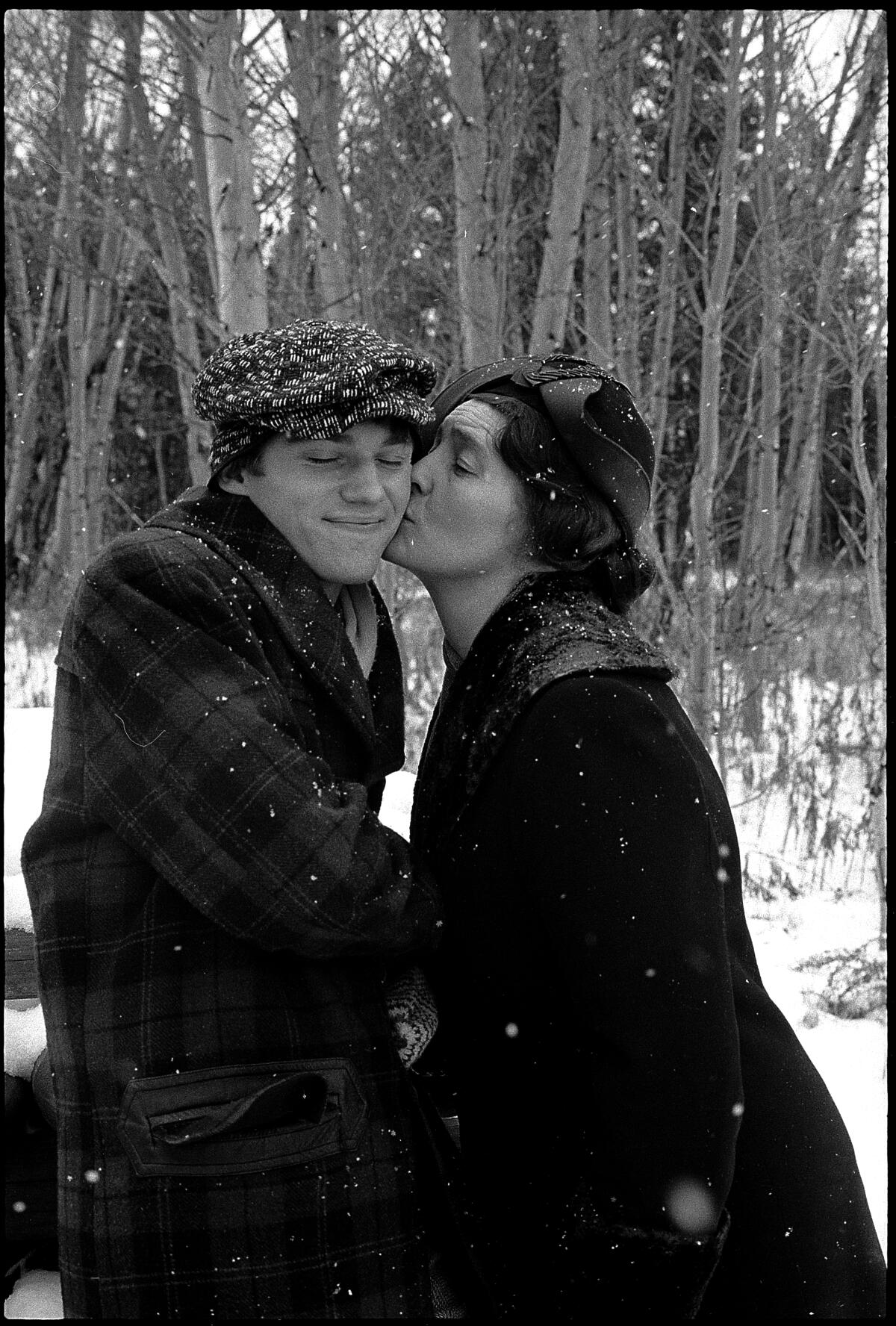From the Archives: ‘Homecoming’ ... A Christmas story to be remembered

- Share via
I have the feeling that “The Homecoming” may be around as long as Santa Claus himself or the last sprig of mistletoe and the last scratchy record of Bing Crosby crooning “White Christmas.” This two-hour television movie, which will have its premiere on CBS tonight, has all the earmarks of a perennial that will turn up on the network Christmas after Christmas after Christmas. And I, for one, am delighted.
This is not only because I am enchanted with the movie — it is such a rich, lusty, roaringly alive experience, sometimes wildly funny, again so poignant and sentimental that I will warn you to have boxes of Kleenex handy when you turn it on. It’s also because it’s American. I hate to seem overly provincial, but I am really getting quite tired of the notion that Christmas is exclusively a British institution.
I have nothing against Mr. Dickens nor his Pickwickians and Scrooges and Tiny Tims. To the contrary, the new animated film of “A Christmas Carol” to be offered by ABC Tuesday night and employing the animation genius of Richard Williams is one of the artistic triumphs of the season.
But Victorian London is as remote from my existence as the mountains of the moon. On the other hand, “The Homecoming” is quite literally the boyhood of Earl Hamner Jr. in the Blue Ridge Mountains of Virginia on one blizzardy Christmas Eve in the depths of the Depression in 1933, and it has been so immaculately translated to film by director Fielder Cook (a Georgian) with, among others, Patricia Neal (a Kentuckian) that it seems now almost something I have lived rather than watched.
It’s one of those movies you carry away bits and pieces with you and bring them out occasionally and relive them. I have only seen the film in rough cut, but in anticipation of watching the finished production I have brought up some of my special bits and pieces for reliving.
There’s Bill Windom whirling through the snow at the wheel of that jalopy, grinning wildly and singing to the storm: “Oh, she’ll be riding six white turkeys when she comes ...” And piled behind him are the white, plucked carcasses of scores of turkeys, and you know Bill is the “Robin Hood Bandit” who robs the markets down to Charlottesville and distributes the food to his poor neighbors in the hills, who, in 1933, were just about everybody.
There’s Richard Thomas as John-Boy Walton, who is the young Earl Hamner really, and who writes in penny tablets and hides what he writes under his mattress, and who goes out into the storm in search for his missing father and runs out of gas. He plunges through the snow to a revival meeting at a Negro church, which includes a Nativity pageant by the children of the church and a Black doll as the infant Jesus, and so filled with delight is John-Boy at all this he almost forgets his missing father.
There’s the Baldwin sisters, aged Miss Emily (Dorothy Stickney) and Miss Mamie (Josephine Hutchinson), who stave off the depression in their fine house by manufacturing the “recipe” their father, the judge, left them — and peddling the product, which is known as bootlegging. But they help John-Boy and give him a taste of the “recipe.” Oh, there’s the missionary woman who gives out presents to children who can recite a verse from the Bible. And it’s the Walton kids, John-Boy and his six brothers and sisters, and particularly 13-year-old Mary Ellen, who supply the Bible lines, though they’re not allowed to accept the presents or other charity. There’s John-Boy in his hot-eyed adolescence who whispers a line to a neighbor kid and shakes up the missionary lady with a sensuous verse from the Song of Solomon.
And there’s Edgar Bergen as Grandpa, and a fine grandpa he is, but sitting in his rocker with the Walton children spread around him listening wide-eyed and laughing with delight at the radio, at Fibber McGee and Molly, you can’t forget, not if you’re my age, that he’s Edgar Bergen, who owned the air in my youth.
Oh, there’s the exploding life of Mary Ellen, there’s the exploding life of them all, the bursting forth skyrocketing flood of life in that snowy village on that Christmas Eve and despite the poverty and the storm and the no Santa Claus, there was such a bursting joy.
Most of all, I suppose, you cherish Patricia Neal and the quiet strength of her, holding this family together, her husband lost out there in the storm, no money, no presents, wrapping herself in a worn black coat and dragging the tired body down to the store to buy a bit of sugar for a Christmas cake. Oh, you remember the twisting smile of her and the haunted despair of her waiting, waiting for “The Homecoming” of her man on that long-ago Christmas Eve.
It’s an American saga, wrought of the native soil, of tougher times but maybe better times, or seeming so because you were young in them. I was about to say it’s as American as applesauce cake, but I don’t remember much about applesauce cake — though I will say it beats plum pudding anytime.
More to Read
The complete guide to home viewing
Get Screen Gab for everything about the TV shows and streaming movies everyone’s talking about.
You may occasionally receive promotional content from the Los Angeles Times.






